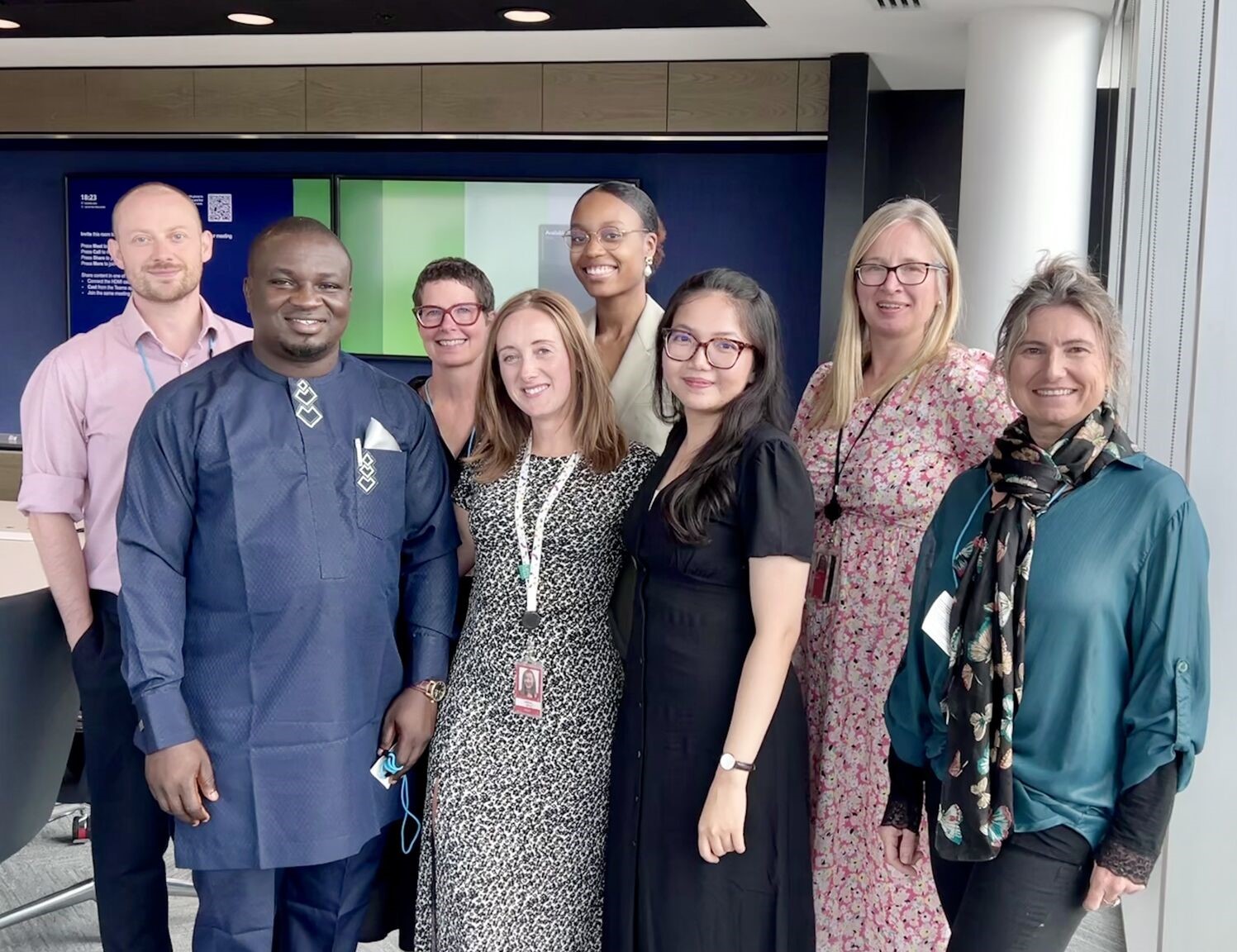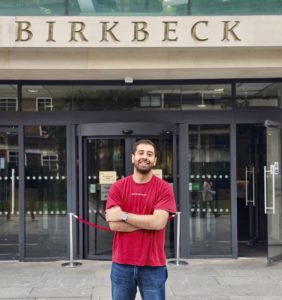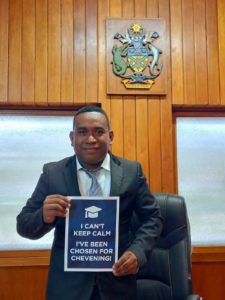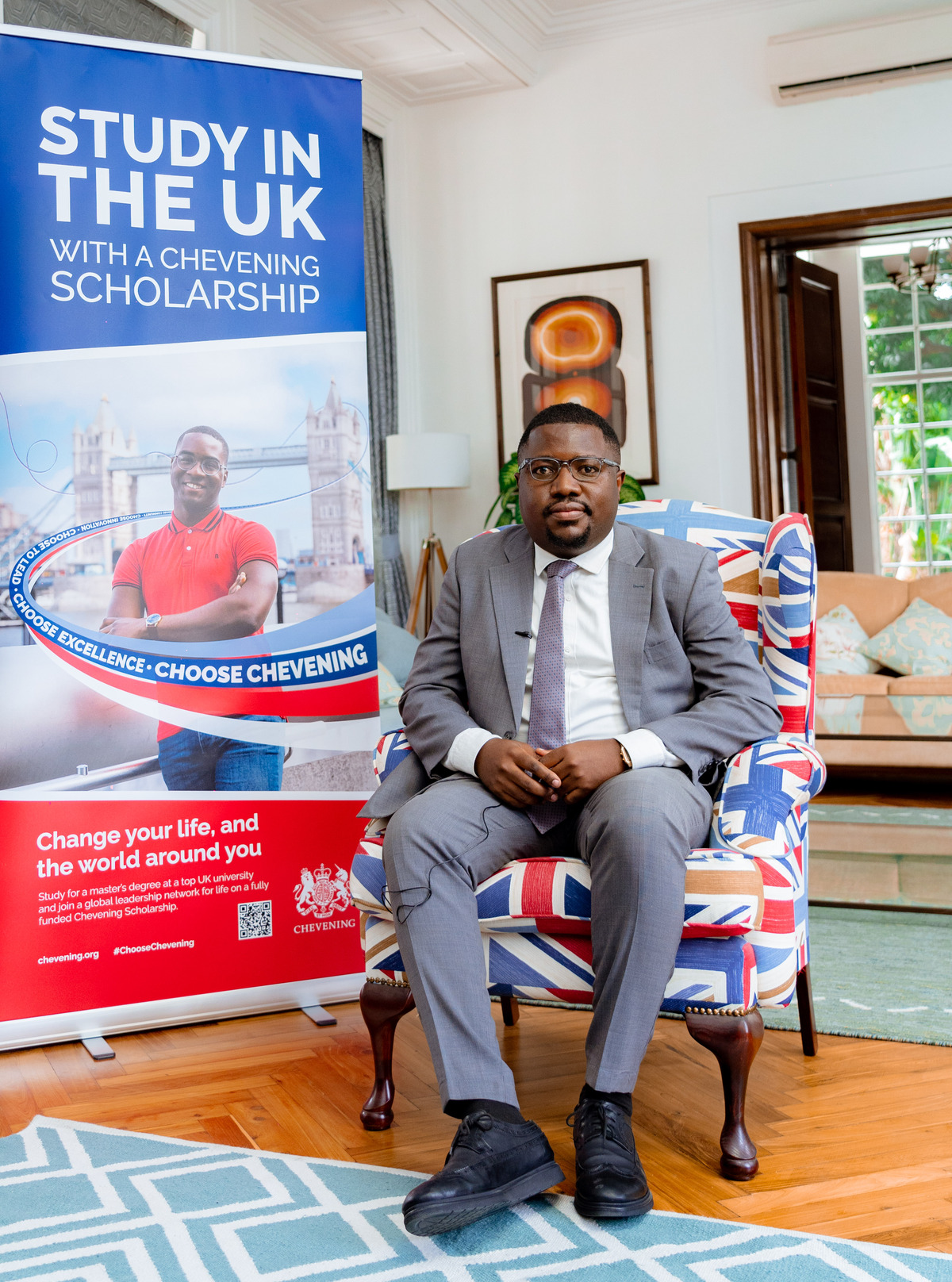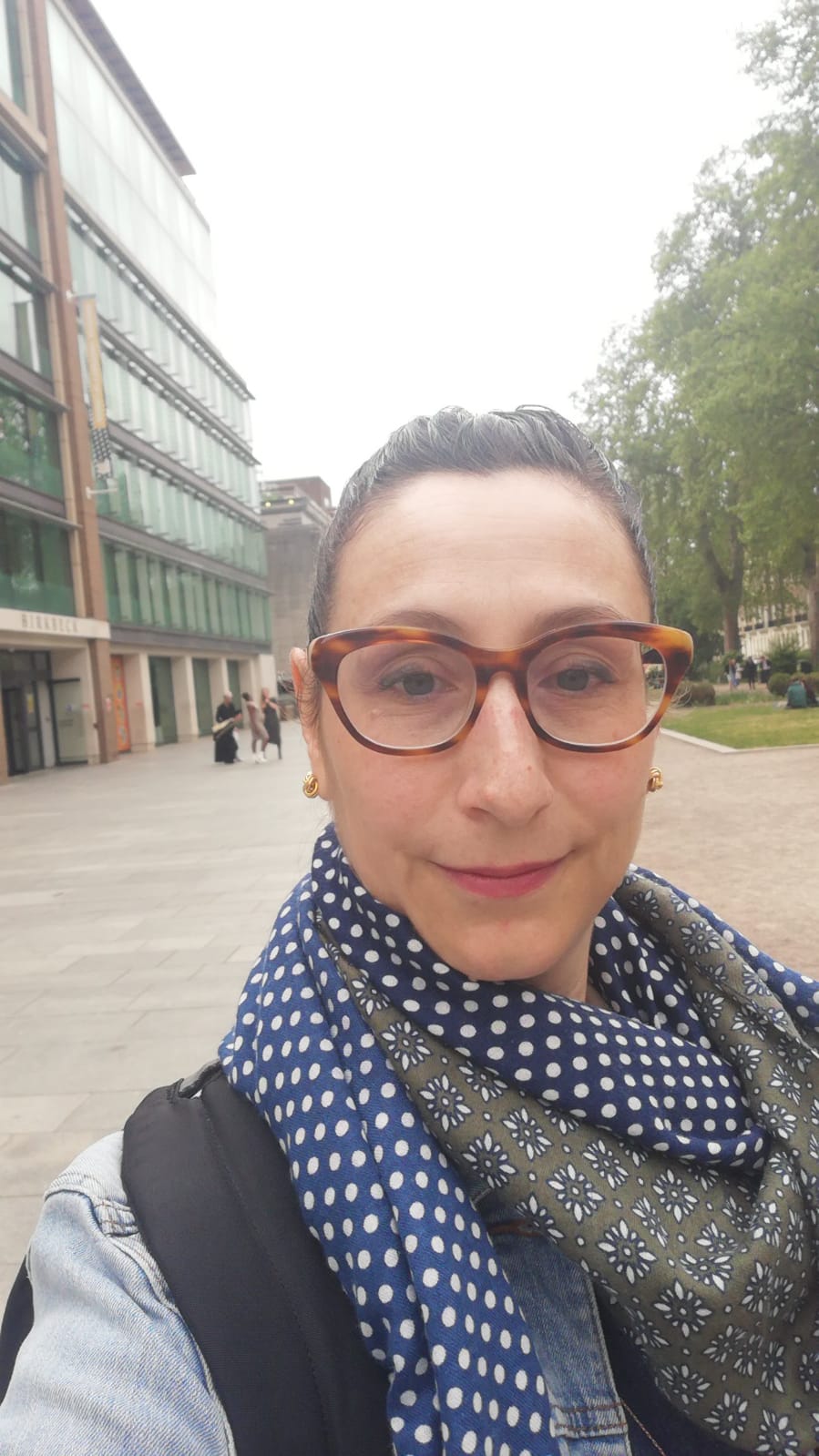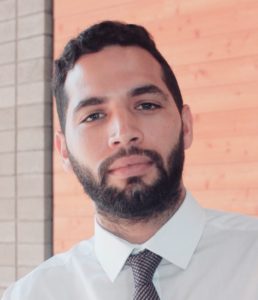In this blog, Dr David Gamblin, module convenor of the Consultancy Challenge and Programme Director for MSc Management Consultancy and Organisational Change, shares more information about the consultancy project students are offered with PA Consulting, a global management consultancy. Three students share their experiences of taking part in the challenge.
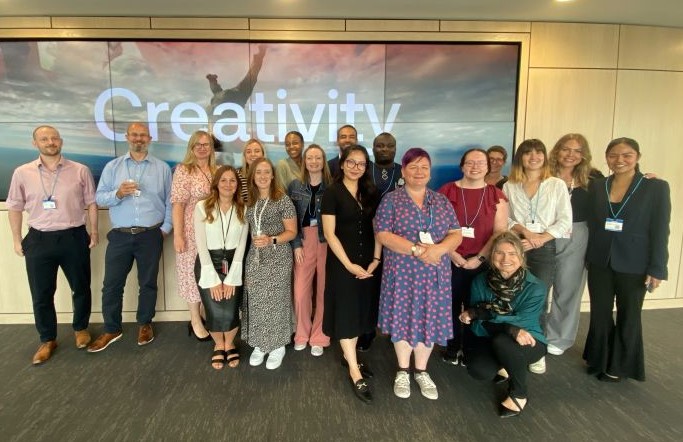
Birkbeck students celebrating the end of their Consultancy Challenge projects with their clients, mentors and supervisors
It is always a particular highlight of the academic year to witness the students complete their Consultancy Challenge projects. Over a busy 12-week consultancy cycle, the students work diligently from the initial scoping of the briefs with their client, all the way to the final presentation of deliverables – with plenty of rapport building, teamwork, data collection, and problem solving along the way.
These projects are an ideal exposure to the world of consultancy, with student teams working with real clients, on real problems that the clients need solving. The impact is real too, and with the projects’ focusing on the charity sector, it means that the students are making a beneficial difference to organisations, staff, and volunteers who are serving often vulnerable populations.
Whilst the work is challenging, the student teams are supported along their journey by PA Consulting who provide expert mentorship and guidance. Through PA’s approach of continuous feedback, the students are challenged to deliver work that PA would be proud of, in a supportive and stimulating environment. This provides the students with the perfect opportunity to put their knowledge and learning into practice, and learn crucial consultancy skills over the project and beyond.
My sincerest thanks go out to all of the consultants at PA with whom we have the pleasure of working, for providing our students with their support and expertise. The collaboration is approaching a decade now, and it is truly rewarding to reflect on the student journeys each year, how they have grown from this rich experience, and the difference that can be made through this innovative relationship.
Student testimonial, Ma. Teresa Manrique, Consultancy Challenge 2023
The Consultancy Challenge was the highlight of the MSc Management Consultancy and Organisational Change degree for me. It gave me the opportunity to apply and refine the skills I had learned throughout the course, and to test my knowledge with the guidance of my mentors and tutors.
Working with PA and the client was a valuable experience. They treated our team with professionalism and engaged with us as professionals, not as students. After presentations, they gave feedback on our performance and how we could improve. The challenge taught me how to work in a multicultural and dynamic setting. I learned how to adapt to British culture and how to work effectively with colleagues and clients from different backgrounds. I also learned the importance of being resourceful and assertive in order to deliver on commitments. Having worked for a client in a line of work that I had no experience in was especially rewarding. It gave me the opportunity to learn about their advocacy and to develop my own skills in this area.
Overall, the Consultancy Challenge has made me more confident in my ability to seek employment in the UK. I am now ready to apply the skills and knowledge I have gained to make a significant contribution to any organization. I have also made some valuable connections with other students and professionals in the field of management consultancy. I am confident that these relationships will continue to benefit me throughout my career. I’m grateful for the opportunity to have participated in the Consultancy Challenge. It has been a challenging but rewarding experience, and I am confident that it has prepared me well for a successful career in management consultancy.
Student testimonial, Tonia-Lee Smith, Consultancy Challenge 2023
I had the opportunity to participate in the Consultancy Challenge, not only as a member of the team but also as a team facilitator. David had warned us that it wasn’t called the Consultancy Challenge for name’s sake, but that it was designed to challenge us to grow and work in a way that we hadn’t previously and find innovative solutions to our problems.
I’ve spent most of my time in academic settings and my work experience had been in more casual environments, so, while I was excited to be working with and learning from PA, I was also nervous, as I didn’t know what to expect. PA did an amazing job at setting the tone from the beginning and managing expectations. My mentor, Hannah, was the key to our success in the project. She was great at anticipating the needs of our group and the client’s as well. Her experience and authenticity helped us feel more comfortable in our roles. PA did a thorough job offering feedback and Hannah did a great job of helping us apply the advice in a practical way.
I’ve learned a lot about delegation, project management, leadership, the importance of a strong and consistent work ethic, and of course consulting with a client and that’s not even the entire list. This experience, though more challenging than I could have imagined, is something I would do again. The tips and help I received from everyone involved in the process is invaluable to me and are things that I’ve already started applying in both my professional and personal life and I’m sure will be most useful to me as I delve deeper into my career.
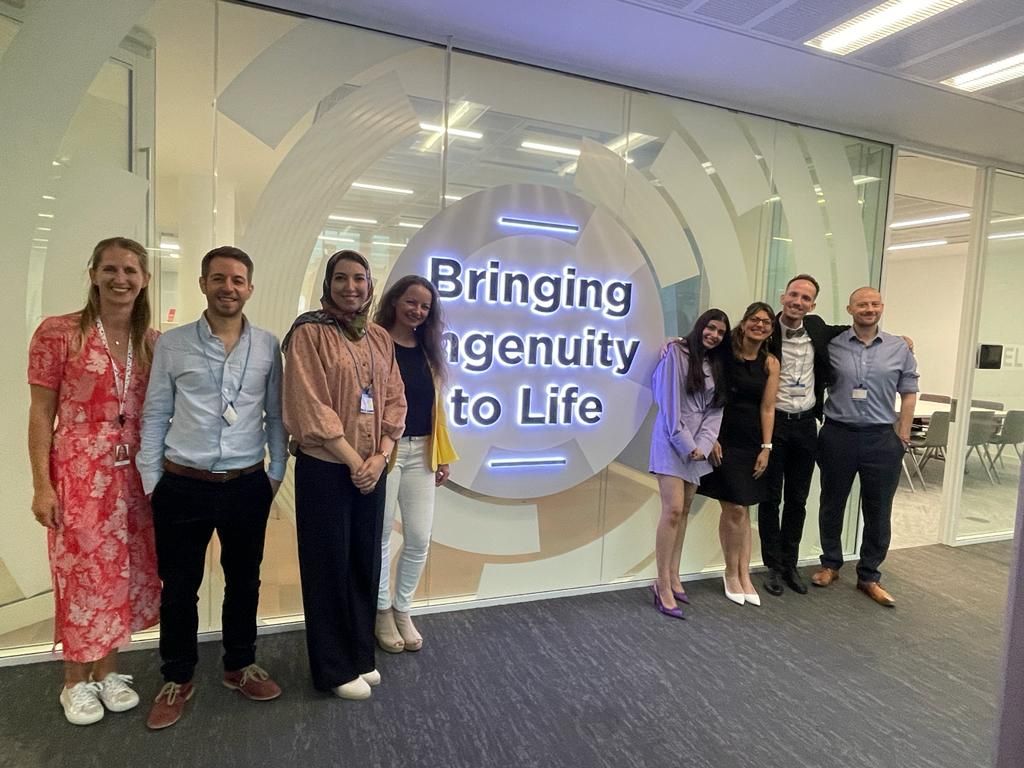
Birkbeck students celebrating the end of their Consultancy Challenge project with Emily Hill, Principal Consultant at PA, and Dr David Gamblin, Consultancy Challenge convenor at Birkbeck
Student testimonial, Ngozi Anuforo, Consultancy Challenge 2022
The Consultancy Challenge offered me a personal and professional challenge and it was a fantastic opportunity to draw together my learning on the Master’s degree.
I found the challenge inspiring and valued the way in which working on a real organisational dilemma created the chance to draw on the support and guidance from experienced colleagues at PA Consulting and Birkbeck. I gained a huge amount from the diversity and range of skills and knowledge amongst the other students in my team.
I would highly recommend the Consultancy Challenge to anyone wanting to grow their professional confidence and ability to deliver effective consultancy practice with a high degree of insight and reflection. Undertaking the challenge enabled me to bring existing experience and knowledge to the fore, and motivated me to continue expanding, and deepening my practice, as a consultant.
Further information

